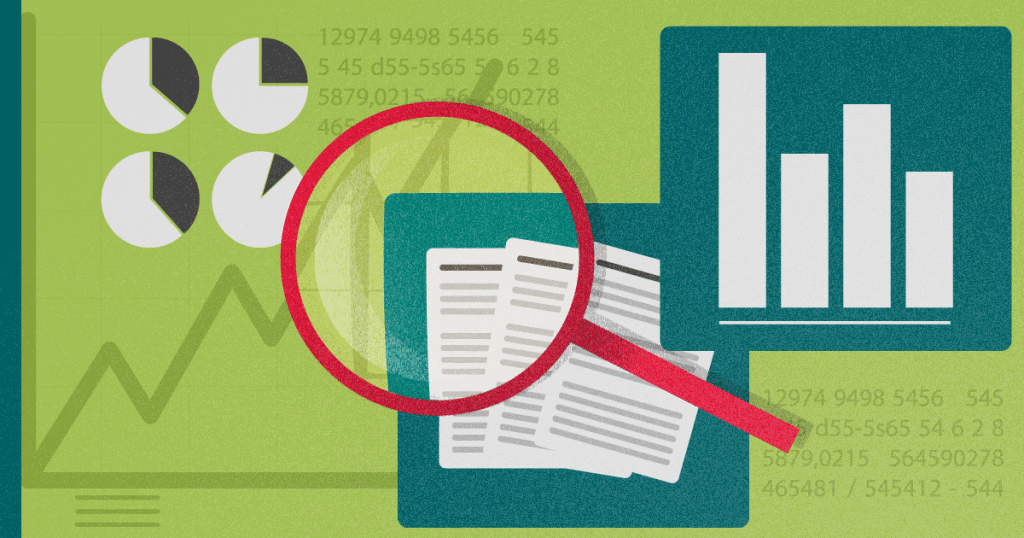It’s not enough to acquire strategic data on your business or market. You also need to be able to read it properly. Have you ever heard of data literacy?
When we think of literacy in general, most of the time it means being able to understand the written word. However, more aspects of life require a special ability of comprehension, and data is one of them.

In this article, we’ll discuss:
- what is data literacy;
- the importance of data literacy in the current age;
- the benefits it brings;
- how this expertise can be appropriately used by your business.
What is data literacy?
The term data literacy refers to the ability to read and analyze data. Technology has evolved enough that we’re now able to capture a lot of data to understand our business performance, the behavior and preferences of our clients, how the market is changing, and others. All it takes is the right person to analyze all that.
Data literacy requires knowledge of not only math and statistics, being an important soft skill for people with varying backgrounds and areas of expertise. They must also be capable of displaying their conclusions understandably so they can help other areas of your business.
Such work is usually performed by using data analytics tools, so it also requires experience in how they function and how they can be used to achieve your goals. This involves learning how to operate them and keep up with the newest and most innovative solutions in this ever-evolving market.
Someone who’s well skilled in data literacy can understand the goals of a business and read the appropriate data to ensure the correct strategies are being developed and helping reach success. This shows how important this position is and also why it requires a highly skilled professional.
Why should I invest in data literacy?
With so much data around us nowadays, investing in data literacy is the only way to make sense of it all to help your business grow and achieve its goals. Have you noticed how Big Data is one of the biggest trends right now?
More than just another buzzword, Big Data refers to our current scenario of data in large quantities, vast diversity, highly variable accuracy, and exponential growth. Because of all that, being able to analyze all this data is extremely valuable to businesses in various segments.
Are you looking for more convincing arguments in favor of working with data literacy in the age of Big Data? Check them out:
- daily, people generate 2.5 quintillion bytes of data;
- by 2025, over 150 zettabytes (or 150 trillion gigabytes) will require analysis;
- 90% of all data we have was created in the last two years;
- in a year, the data analytics software market grew by 14%;
- by 2023, the Big Data industry will be worth around $77 billion;
- 95% of businesses suffer from an unstructured data problem;
Source: Kommando Tech
What are the main benefits of investing in data literacy?
Now that you know what data literacy means, you are probably wondering why it’s so important to bring this idea to your business. Being able to acquire information and leverage it in favor of your goals is the main draw of working with Big Data but that requires a proper understanding of it all.
Check out the biggest benefits your business will enjoy by investing in data literacy:
Better decision-making
Running a business requires strategic planning all day, every day. Making the wrong call might be highly damaging to your ability to reach your goals, so it’s imperative to always have all the information you can before making important choices.
If your business has a data literacy expert among its staff, you will be able to count on this person to help you visualize your information and learn more about your alternatives. By knowing more about how your market and consumer are behaving, as well as your product and service’s performance, you’re able to make smarter choices.
Better ROI understanding
Working with data literacy also allows you to make sure your strategic decisions are generating the expected returns on your business. Calculating your ROI is probably already part of your everyday life but a deeper grasp of such data will help you see the often hidden truths that make the whole difference.
After all, numerous factors contribute to a return on investment in a strategic choice (or lack of thereof). Only by investing appropriately in understanding all your data you can know more certainly what is right and what needs to be improved.
Better client knowledge
Knowing whom you’re trying to reach is decisive to the success of your strategies. Your business must have as much information as it can about its target audience so the correct approaches can be planned and executed.
Obtaining a large amount of data on the motivations, needs, desires, and the science of emotion of your clients is essential to attract them. The next stage involves the comprehension of all this information by someone who’s data literate.
Better relevance in your market
All markets are changing and evolving quite fast and it’s necessary to follow these transformations up close. Being able to understand these trends and acting upon them requires a formidable grasp of all the data you can obtain.
By having a data literacy expert on your team, you will be able to acquire the right information to leverage your relevance in your market. This means your business will be able to invest in the most promising directions and enjoy an ever-growing success.
Why and how to implement data literacy as a company culture?
To make a real positive impact on your business, data literacy must not be restricted to the Business Intelligence or IT departments. In reality, the ability to interpret data and understand it should be part of broader company culture. Doing that, however, can be quite challenging without the proper guidance.
Here is a comprehensible list of steps you need to take to implement data literacy as a company culture in your business.
Set concrete goals
As you have learned so far, one of the major benefits of data literacy is being able to reach your goals in objective ways. Thus, a decisive step in making sure your business is data-oriented is setting concrete goals for your future.
It also requires everyone on your team to be aware of these goals and accountable for the strategies that are developed to achieve them. As data literacy is a valuable tool to do that, your company culture will benefit greatly from this idea’s contribution.
Invest in the current talent
People on your staff might be promising talents in data literacy. Instead of focusing all of your efforts on hiring, also make sure to invest in the professionals you already have that require some qualification.
This can be done through appropriate training, many of which can be taken by people in several different levels of expertise. Keep the door open to attract people from any field of work that can be interested in learning data.
Work with the best tools
The concept of Big Data is deeply rooted in the fast-paced rhythm of technology. Your business needs the right tools to turn this into a reality within your company culture.
This includes good data visualization software that can display the information you have so those who are data literate can interpret it.
Create a data literacy program
As usual, for something to become a part of company culture, it needs an initiative that is focused on reaching everyone. Why not create a program?
For it to work, it must lay out exactly what data literacy is, why it’s essential, and how each member of your team can feel included in the process. This might plug into what we discussed in the previous step and awake several dormant talents you may already have.
Have leaders give the example
Being data literate doesn’t just mean understanding all that volume of information, as it also requires making decisions based on them. This has an impact on several areas of business and can be perceived by others.
That’s why it’s so important for leaders to give an example of data literacy for it to be solidified as part of your company culture. If your leaderships don’t act in data-oriented ways, it will be much harder to disseminate data literacy.
Now that you know the value of working with data literacy and how to include that idea in your company culture, it’s time to start planning your approach. To have the best strategies and make the correct decisions in the modern world, it’s essential to acquire the right data and be able to understand it. As this is no longer optional, use the information in this article to begin your journey towards data literacy.
How about checking some references on that matter? Here you can see the 6 best data visualization examples of 2020.







